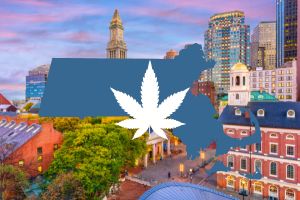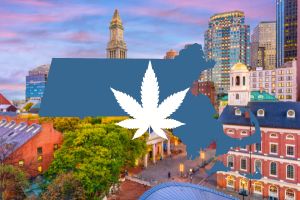Is Hemp Legal in Massachusetts?
May 12th 2021

Navigating the Legal Landscape of Hemp in Massachusetts: A Comprehensive Overview
Massachusetts stands at the forefront of progressive hemp legislation, embracing the versatile plant's potential while aligning with the 2018 Farm Bill's federal mandates. This article delves into the regulatory framework governing hemp cultivation, processing, and the sale of hemp-derived products in the Commonwealth, offering valuable insights for both industry stakeholders and consumers.
Massachusetts' Embrace of Hemp Cultivation
The legalization of hemp cultivation in Massachusetts under the 2018 Farm Bill marked a pivotal moment for the state's agricultural sector. This federal legislation distinguished hemp from its psychoactive counterpart, marijuana, by defining it as an agricultural commodity with a THC concentration of no more than 0.3%. Massachusetts swiftly adapted to these changes, establishing a regulatory framework through the Massachusetts Department of Agricultural Resources (MDAR) to oversee the cultivation of hemp flower within the state.
Licensing: A Gateway to Hemp Production
For those looking to enter the hemp industry in Massachusetts, obtaining a license from MDAR is the first crucial step. The state offers various license types, including grower, processor, and dual grower/processor licenses, catering to the diverse needs of the industry. Applicants are subject to a non-refundable application fee and an additional license fee, with costs that vary based on the license type. This structured approach ensures that all hemp production and processing activities meet the state and federal regulatory standards, maintaining the industry's integrity.
The Sale of Hemp-Derived Products: Regulations and Restrictions
Massachusetts adopts a clear stance on the sale of hemp-derived products, differentiating between the wholesale and retail markets. While MDAR regulates the wholesale market, it does not extend its oversight to retail sales (direct-to-consumer transactions). This distinction allows for a vibrant retail market where consumers can access a variety of hemp-derived products (like CBD flower, pre rolls, CBD oils, and more) without the retailers needing a specific license from MDAR. However, certain restrictions apply, especially concerning food products containing CBD and non-food products making therapeutic claims without FDA approval.
Consumer Guidance: Navigating the Hemp Product Market
For consumers in Massachusetts, understanding the legal landscape surrounding hemp-derived products is crucial. The state permits the sale of a wide range of hemp-derived items, including non-food CBD products (like, for instance, CBG flower) that refrain from making medicinal claims. However, consumers should be aware of the prohibitions in place, particularly regarding food products containing CBD and products making unapproved therapeutic claims. Staying informed about these regulations can help consumers make safe and legal choices in the hemp product market.
Verifying Product Compliance
When purchasing hemp-derived products in Massachusetts, it's essential to ensure that these items comply with both state and federal regulations. Products should contain no more than 0.3% THC, aligning with the legal definition of hemp. Consumers are advised to look for labels or accompanying certificates of analysis that verify a product's THC content and confirm that it has been tested by an accredited lab. This step is not just about legality; it also concerns safety, as reputable products are less likely to contain harmful contaminants.
Understanding Product Labeling
Massachusetts places specific restrictions on the types of hemp-derived products that can be sold, particularly those intended for human consumption. Consumers should be wary of products making therapeutic or medicinal claims that have not been approved by the FDA. This includes certain CBD products marketed as dietary supplements or for health benefits. The state's guidelines stipulate that non-food CBD products should not make any medicinal claims unless they have received FDA approval, a crucial detail for consumers to note when purchasing these items.
Conclusion
Massachusetts' legal framework for hemp cultivation, processing, and sale underscores the state's commitment to fostering a responsible and thriving hemp industry. By adhering to both state and federal regulations, stakeholders can explore the economic opportunities hemp presents while ensuring consumer safety and compliance. As the industry continues to evolve, staying abreast of the latest regulations and guidelines will be paramount for anyone involved in Massachusetts' hemp market.
For more detailed information on hemp regulations, licensing processes, and consumer guidance in Massachusetts, visiting the Massachusetts Department of Agricultural Resources and the Massachusetts Hemp Program pages is recommended. These resources offer comprehensive insights into the state's approach to hemp, providing a solid foundation for navigating the industry's legal landscape.



